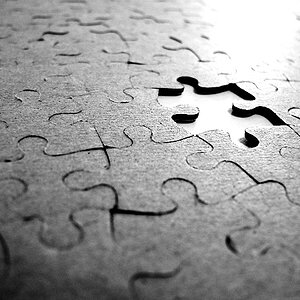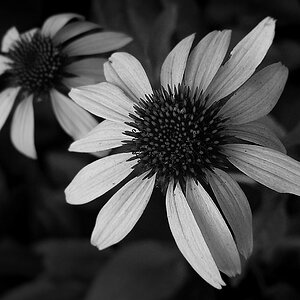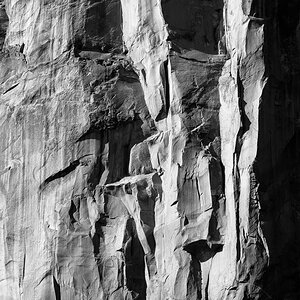christopher walrath
No longer a newbie, moving up!
- Joined
- Mar 19, 2008
- Messages
- 1,265
- Reaction score
- 25
- Location
- In a darkroom far, far away...
- Website
- home.comcast.net
- Can others edit my Photos
- Photos NOT OK to edit
Hey, Victoria. I don't think it is film v. digital comparison so much as it a 'film has been around for frickin ever and people are more familiar with it' kinda thing. As to the example you gave. Magnification is just image size. a normal type lens, 50mm or so (speaking film equipment as that is what is use) has magnification of 1 to 1 or lifesize. Longer macro lenses or macro bellows extensions can provide much closer focus and thus larger images at the focal point, larger than the 1 to 1 of a normal lens. As to zoom ratios, I've never had need to know them but they're simple math. 105 divided by 35 equals 3. zoom ratio of three. But, and here's the kicker. Even though there is a zoom ratio of 3 going from 35mm to 105mm, there is an increase in image size AREA by a factor of 9. 3 times on the horizontal and three times on the vertical. Three times three is nine.
And give any and all your questions. We'll guide you through the churning waters of photographic academia.
And give any and all your questions. We'll guide you through the churning waters of photographic academia.





![[No title]](/data/xfmg/thumbnail/39/39469-3f2d242112dec8dc3e7b2836cc85afec.jpg?1619739042)

![[No title]](/data/xfmg/thumbnail/42/42015-c5cdef195e2aab7b272f0c03437c42c4.jpg?1619739978)


![[No title]](/data/xfmg/thumbnail/41/41782-daa26990361bf4193a874908bda10dbb.jpg?1619739891)


